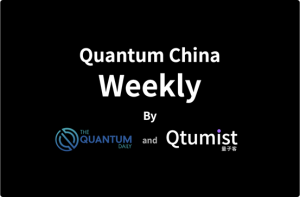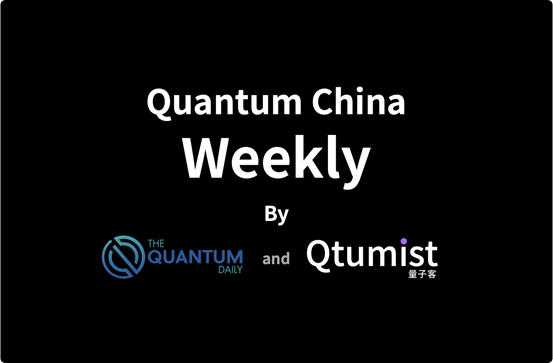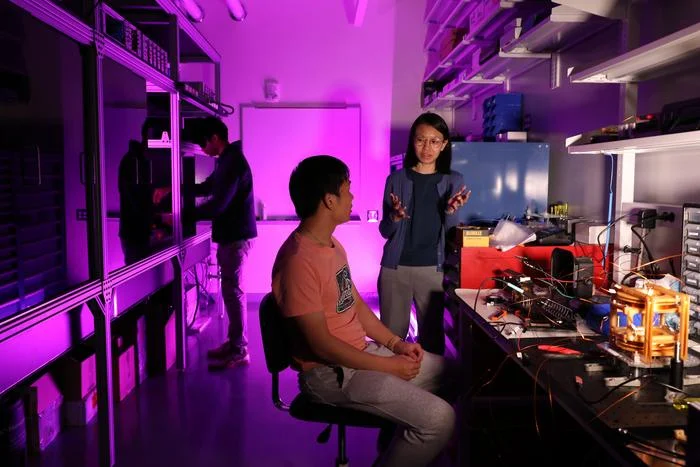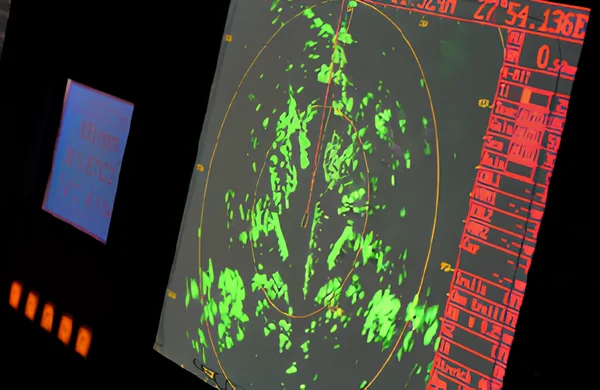
Quantum China is a weekly periodical focusing on China’s quantum information technology, provide a voice for the Chinese quantum technology. It mainly focuses on eight major directions: Policy, Capital, Business, Technology, Research, Education, Conference, and People. Providing researchers, Interested parties, and industry pioneers with all the latest developments in China’s quantum field.
Policy
Quantum technology included in National Cryptographic Industry Standard
On October 19, the National Cryptographic Administration released 16 cryptographic industry standards, including GM/T 0108-2021 Technical Specification for Decoy State BB84 Quantum Key Distribution Products and GM/T 0114-2021 Testing Specification for Decoy State BB84 Quantum Key Distribution Products, which is the first time that quantum key distribution (QKD) has entered the national cryptographic industry standard, which will be implemented on The standard will be implemented from May 1, 2022.

Business
Baidu Quantum announces new QIAN strategy upgrade, releases first cloud-native quantum integrated development environment
On October 21, at the 2021 5th Global Smart Industry Conference Big Data Intelligence and Scientific Computing Forum, Duan Runyao, Director of the Institute of Quantum Computing, Baidu Research Institute, announced the upgrade of Baidu Quantum QIAN strategic plan, aiming to create integrated quantum software and hardware solutions. The world’s first cloud-native quantum integrated development environment, YunIDE, was also released to provide a new quantum programming experience.
Origin Quantum was approved as a provincial postdoctoral research station
On October 19, Anhui Provincial Department of Human Resources and Social Security issued the Notice on the Approval of 50 Units to Establish the 12th Batch of Provincial Postdoctoral Research Workstations, and Hongyuan Quantum was approved as a provincial postdoctoral research workstation, which is the first quantum information enterprise to be approved as a postdoctoral workstation in Anhui Province. Postdoctoral research workstations are approved organizations that can recruit and train postdoctoral researchers in enterprises, research and production institutions and special regional institutions.
Capital
Arc Light Quantum Completes Tens of Millions of RMB Angel Funding Round
Recently, Arc Light Quantum completed an angel round of financing of tens of millions of RMB, Arc Light Quantum said that this round of financing will be used to improve the layout of quantum software products, train the quantum computing talent team, and accelerate the combination of quantum algorithms and other cutting-edge technology business landing. Arc Light Quantum is jointly funded by the Institute of Software Research of the Chinese Academy of Sciences and its quantum software research team, and is committed to becoming a world-class one-stop quantum software product and service provider.
People
China Computer Federation Quantum computing professional group was officially established, academician Guo Guangcan was elected the first director
China Computer Federation Quantum computing professional group was held in Hefei on October 17, 2021, with more than 100 first executive members of the professional group attending the meeting. The first executive members of the professional group present at the meeting voted by secret ballot according to the Regulations for the General Election of the CCF Professional Committee, and the first leading body and 11 executive members of the professional group were elected through a differential election, of which Guo Guangcan was elected as the first director of the professional group.
Professor Bei Zeng, Chief Scientist of SpinQ , was elected as a Fellow of the American Physical Society in 2021
The AmericanPysical-Society (APS) has announced the names of its 2021 new Fellows (APSFellow), and Professor Bei Zeng, Chief Scientist of SpinQ, has been elected in recognition of her pioneering work and contributions to the field of quantum information science, including quantum error correction and fault tolerance, many-body entanglement, quantum lamination, quantum boundary problems, and applications of quantum information science to quantum matter, as well as her long-term contributions to quantum information science services and education.
For more market insights, check out our latest quantum computing news here.














